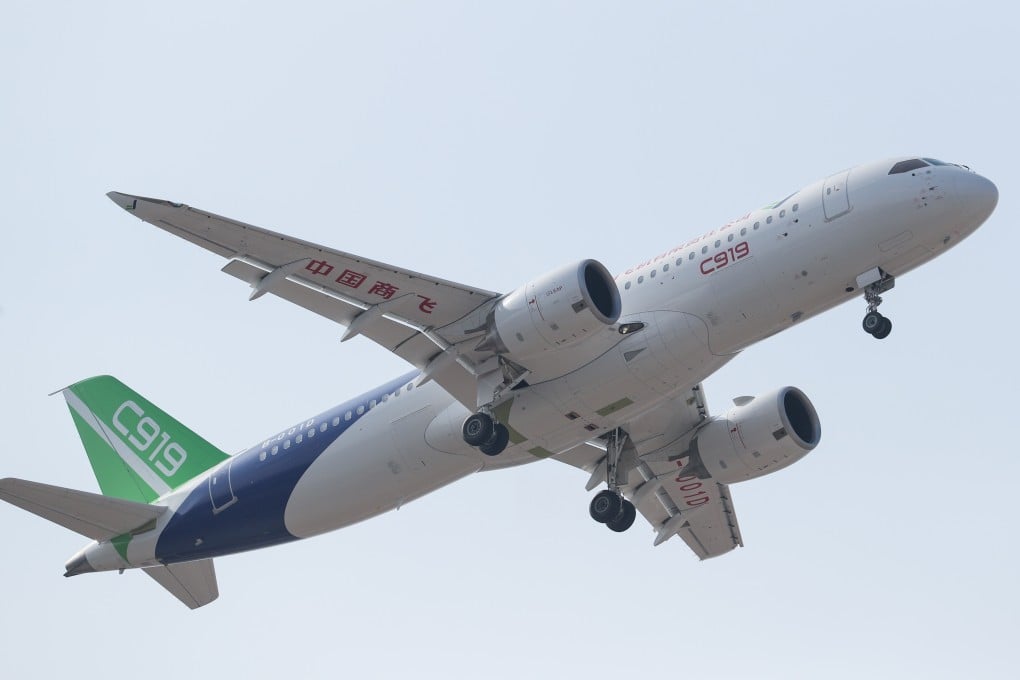Advertisement
Donald Trump’s mooted China sanctions to throw spanner in the works of C919 passenger jet plans, sources say
- Trump administration’s reported plan would restrict US exports of parts to 89 Chinese companies with military links
- Comac, the state-owned firm building the C919, depends on US suppliers for key components, including flight controls and jet engines
Reading Time:3 minutes
Why you can trust SCMP

China’s plans to roll out the home-grown C919 passenger jet next year could be severely disrupted if the Trump administration restricts US companies from doing business with the state-owned conglomerate developing the plane due to its alleged links with the Chinese military.
The Trump administration is expected to soon announce export controls on a list of 89 Chinese companies with military ties, including the Commercial Aircraft Corporation of China (Comac), Reuters reported.
Two separate sources who have seen the draft list confirmed the report’s accuracy to the South China Morning Post, adding that additional Chinese entities may be added to the list before it is officially released. The list has yet to be officially confirmed.
Advertisement
US suppliers would be required to seek special licenses to sell commercially available items to companies on the list. In Comac’s case, the C919 depends on a series of components made by American companies, including flight controls and jet engines.
A senior Comac executive said the draft list has “greatly” increased uncertainty for the company and its US suppliers.
Advertisement
Advertisement
Select Voice
Choose your listening speed
Get through articles 2x faster
1.25x
250 WPM
Slow
Average
Fast
1.25x